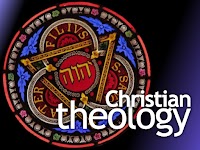
If you’ve heard of theology, you’ve likely heard of “conservative theology” and “liberal theology”; of “conservative theologians” and “liberal theologians.” And you might presume you know what those mean: A conservative theologian is probably one who respects tradition and the bible, and a liberal theologian doesn’t.
Roughly that’d be accurate. Very, very roughly.
Properly,
But how Christians typically use the term “liberal theology” is simply as a pejorative. Doesn’t always even mean liberal! An arch-conservative
Everybody’s kinda decided where they are on the theological spectrum. So, some woman might consider herself a theological conservative because she upholds the bible’s authority so very, very much. And most of us would agree, ’cause believing the bible is an infallible theological authority, is what we’d consider theological conservatism. But another person,
I likewise consider the bible an infallible theological authority. I’d call myself a conservative theologian for this reason. But of course I’ve been called a liberal theologian—for a number of reasons. I believe the scriptures fully support women in Christian leadership, but sexists insist they fully don’t, and I must be twisting them to come to my conclusions; ergo I’m a liberal theologian.
Or I’ve expressed political views which they consider liberal. I was raised by political conservatives (and they’re still conservative), but as I became an adult and followed Jesus further, I chose to adopt a few “liberal” views because I think they’re consistent with Jesus’s teachings, and my former conservative views are not. I’m certainly not “liberal” across the board, ’cause I think my conservative views are likewise consistent with Jesus. It’s a hodgepodge of positions. But to political conservatives, any political
Or it’s simply because I’m Pentecostal and they’re not; or because I uphold the ancient Christian creeds and they don’t. And you’d think upholding the creeds would make me considered more conservative than they, not less. But they covet the label “conservative,” and if I’m in any way wrong in their eyes, I get the label “liberal.” That’s my punishment for believing things they don’t.
So yeah—in practice “liberal theologian” means “more liberal than me,” and of course wrong and
What we oughta see in conservative theology.
Again, “liberal theology” has an actual meaning: It’s unitarianism. Doesn’t matter if it’s part of the Unitarian Universalist Church or not; when theologians believe as unitarians do, and insist Jesus isn’t God and the bible’s pure myth, and use all the traditional Christian terms to mean something new and weird, that’s actual liberal theology.
Conservative theology, in contrast, is upholding tradition and bible. By
Oh, and by tradition I also mean
Otherwise, bible. Which needs to be studied
And lastly, consistency: What we find in the bible, what we learn from tradition and our fellow Christians, what we hear from
Those with other definitions of tradition.
Because a proper study of God is gonna inevitably lead to interactions with God, and he’s gonna challenge us to go a lot deeper in our relationships with him than we ever expected, there are a lot of Christians who are terrified of theology. They don’t wanna be challenged. They don’t wanna change. They’re happy as-is.
And the safest way to not change at all, is to redefine theology as “the study of Christian doctrine.” Not the study of God himself; the study of theological statements, which their churches have made as part of their
True, when you study theology, you’re gonna read about all sorts of Christian doctrines. Some you’ll accept, ’cause they totally make sense. Some you’ll struggle with, ’cause they don’t. You’ll be tempted, even encouraged, to just turn off your brain and accept them, ’cause supposedly that’s faith. No it’s not.
Be wary of any Christian who tries to swap your relationship with Jesus, with a relationship with Christian doctrines. Remember,
Feel free to ask questions. Ask tough questions. Ask tough questions. Ask thousands of tough questions. Keep asking ’em even after you think you understand—just in case you don’t. God doesn’t mind questions; shallow people and authoritarians do. Feel free to

